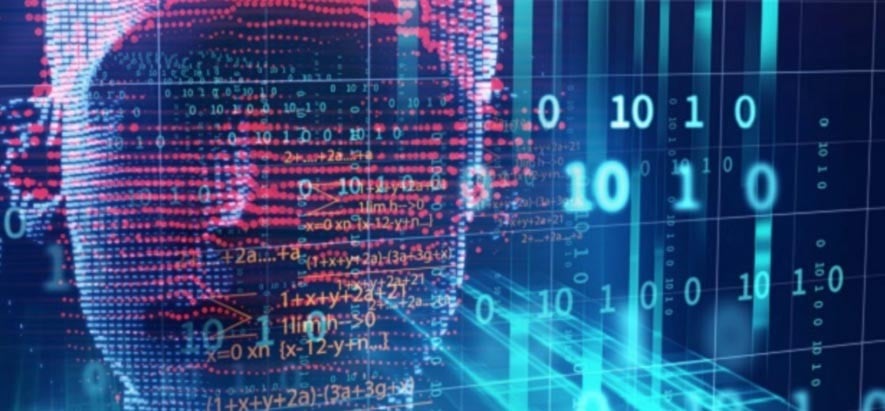
In this day and age, it’s clear that our reliance on automation and Artificial Intelligence is only going to grow

If you ask any computer scientist right now, what is the fastest growing field of the industry, they’ll most likely reply ‘Artificial Intelligence’. That’s an expected response because of how rapidly growing and influential this branch of computer science has become. It is part of our lives in ways unimaginable and most of us carry on with our lives, unaware of how much we rely on it.
Applications of Artificial Intelligence are in every field imaginable that is because of the need for automation and that goes back to the core philosophy of how machines work, that is to help us do tasks with ease.
In our day and age, we’re surrounded by automated devices that don’t even require people running them, and while the idea of computer-controlled services is a frightening one for some, it’s already part of our daily lives, without us realising.
Some normal examples where our frequently used sites cater content using AIs are:
This is all made possible by Artificial Intelligence, and its deep learning algorithms. Tech companies are spending millions in development of AIs to maximise their sales and technological advancements.
Tesla being one of the biggest companies in the automobile and technology industry has been developing advanced AIs that it uses for automated driving, where the vehicle, based on various external and internal factors, navigates without any involvement of the driver.
NVIDIA, which is primarily a graphic card manufacturer, has been working very closely with AI as well in various subfields -- from resorting images to automated vehicles that will learn various aspects of human drivers in real time by observing how we work.
McKinsey Global Institute has commented on the significance of this field by stating that AIs could increase annual gross domestic product growth by about 1.2 percent by 2030, which equates to around $13 trillion of new economic activity. This figure is massive enough to justify the comparison with the Steam Engine that revolutionised the industrial market.
The uses of AI for industrial growth aren’t only limited to research as modern companies have employed the use of financially competent AIs that can provide feedback when it comes to hiring individuals, predicting growth, expecting failures and understanding the behaviour of the stock market and strategise accordingly.
Analysts have predicted that around 70 percent of companies will adopt some form of Artificial Intelligence in their usage.
The number one threat the rapid growth in AI is posing to humanity is how it affects employment for people because machines are taking over jobs from humans. The answer is quite tricky, and it’s disheartening to say the least, but the outcome of automation isn’t always beneficial for the working class.
According to a study following facts were revealed regarding AI’s influence on the job market
While this might be a frightening reality, with every technological rise, more jobs are always created and history has been proof of that. When the industrial revolution happened, surely the agricultural sector suffered, but the job requirement generally became far more expansive.
Even though this will create jobs that will have advanced requirements, the prospects and benefits of AI will definitely create far more lucrative living conditions for consumers and employees alike.
We still have some time to see how the AI revolution in the job sector will take a rise, and what sort of jobs it will create. It will take away the mundane jobs that most computers can do more efficiently.
At its core, AIs are designed and implemented to facilitate us, and the past few years have been proof of the capabilities of this field. The need for AI isn’t solely based on automation however, but to predict and solve many problems relating to our social, economic and medical lives.
Deep Machine Learning and Neural Networks are on the rise, and aim to replicate the behaviour of the brain. This allows us to give us a new way of deducing things, through the use of largely connected data. Machine Learning, dealing with a system based on previous data, makes assumptions and predictions very accurately. This has helped us conserve time and money by focusing on tasks with a higher success rate.
The medical sector has seen various advancements including prediction of a disease’s presence and chance of occurrences. This is all possible by the deductive ability and the power of computers to process data at such an exponential rate that we humans can’t even conceptualise. Cancer and AIDs can be predicted by AI-powered machines based on the symptoms of patients, further strengthening the fight against these hideous diseases. This has resulted in pharmaceutical companies to heavily invest in this growing field as well.
AIs have also been used in more creative fields like arts and music. Free websites allow content creators to use AI-generated music for their content. Various AI scripts are used to restore vintage images and even create art pieces through deep learning.
In this day and age, when our smartphones are capable of calling people and able to carry out entire conversations, it’s clear that our reliance on automation and AIs is only going to grow. The market has recognised this and is heavily investing in it to create more jobs, expand exponentially and earn profit.